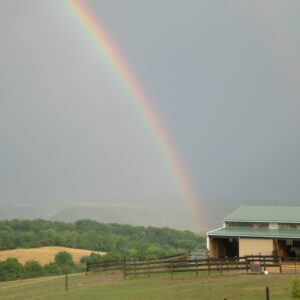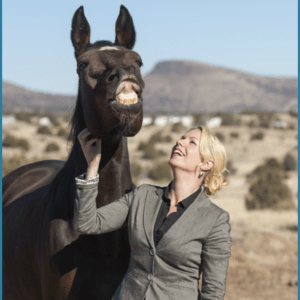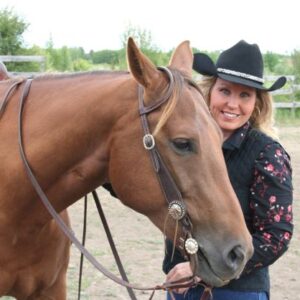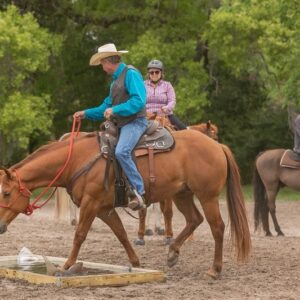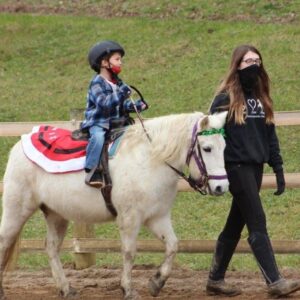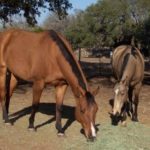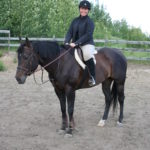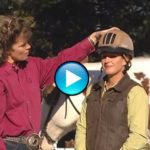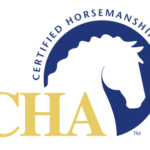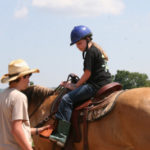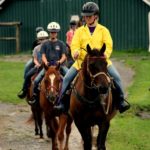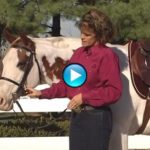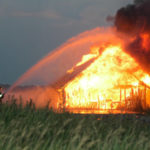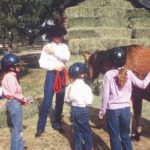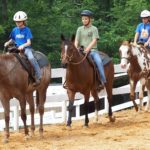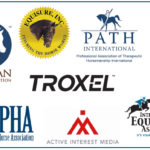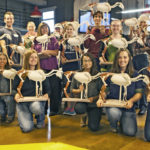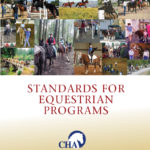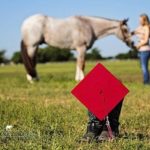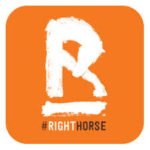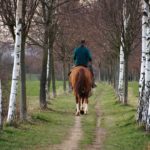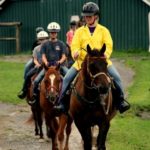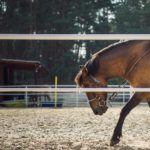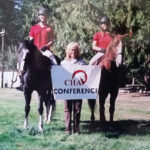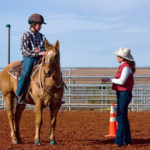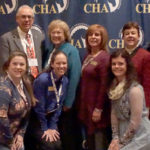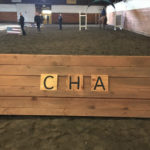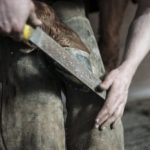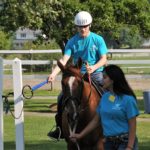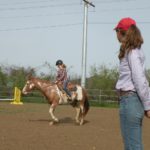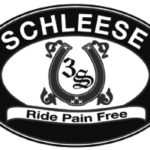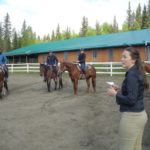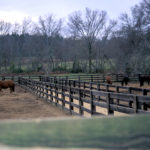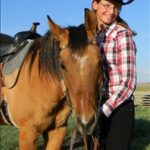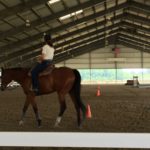CHA BLOG
-
Creating a Sustainable Stable While Still Saving Money is the new Educational Blog Post on Certified Horsemanship Association Website
(May 2022) – The Certified Horsemanship Association (CHA) has a new educational blog post up about Creating a Sustainable Stable While Still Saving Money by Cheryl Rohnke Kronsberg. Visit here today to see this full post. This article goes into depth about ways a stable owner can save money and still provide sustainability to help the environment with unique ideas on how to improve your office space, your water usage and your overall equine facility just to... -
Creating A Sustainable Stable While Still Saving Money
By Cheryl Rohnke Kronsberg - The equestrian business is growing, but remains largely managed and controlled by people who have been in the field for a long time, working with outdated equipment, and on aging facilities. The pandemic has caused the cost of improvements to skyrocket, along with the demand for lessons. This has created a paradox of issues for small stable owners- How to keep up with the demands of these new, young clients,... -
Tools and Tips to Identify Subtle Signs of Pain in Lesson Horses
By Jill Montgomery For equine professionals monitoring horses for signs of pain is part of the job description. CHA certified professionals are evaluated on their ability to correctly identify behaviors like the stance a horse takes when experiencing hoof pain from an episode of laminitis. What if tools to identify pain were available to help identify the trouble at its very earliest stages? Equine science has revealed a lot about horses’ natural behaviors. This work has helped... -
When Burn Out Steals the Joy from Working with Horses (Don’t Lose Your Love for the Lifestyle)
By Jill Montgomery I have a friend who is a very successful horse trainer, judge, owner of a beautiful facility and many champion horses. He teaches riding lessons, volunteers for civic and youth groups and seems to be ready to help whenever a person is in need and a horse is involved. He is a great guy. He is also tired, bone tired. He says, “Jill it feels like I am putting ten days into every... -
Is an Older Client a Good Fit in Your Equine Program?
By Jill Montgomery What comes to mind for many people when a riding instructor says, “I give riding lessons,” is a group of little girls with pigtails popping out from under their helmets circling around a white-board fence riding arena on a mix-matched herd of ponies and horses. For those in the horse business, recognizing this as a popular myth speaks to the opportunity to have a broader segment of the horse-interested public. Educating the public... -
Riding Program Success Lessons from the Pandemic
By Jill Montgomery Passing the one-year anniversary of the COVID19 Pandemic has been a global challenge, especially for non-profit organizations and small businesses like riding stables and equestrian programs, which were generally not considered essential services. Even so, some horseback riding programs have been able to rally their unique strengths for operating with COVID19’s restrictions and excel during this time of social distancing and anti-viral safety measures. As 2021 promises a better new normal, there are... -
Virtual Horse Shows – All Riders to Demonstrate Their Skills at Home
Frustrated by horse show cancellations? You don’t wait for in-person events to resume. Try a virtual horse show. Online horse shows offer a platform for competing at home while having a chance to win prizes and receive constructive feedback. “Riders have the chance to compete in a low stress environment for the chance to earn cash and receive great constructive critiques,” said Elizabeth Lawhorn, the American Paint Horse Association (APHA) Director of Performance Development. APHA planned... -
Starting a Hay Bank
By Katie Navarra Feed and hay bills did not stop even though income evaporated amid the coronavirus pandemic. Organizations across the country offer access to hay banks and A Home For Every Horse helps connect horse owners with those resources. “The main goal of hay banks is to help people in need keep their horses instead of rehome them,” said Melissa Kitchen, the vice president of marketing services at Active Interest Media (AIM) Equine Network and one... -
CHA Certified Instructors Share What Their CHA Certification Has Done for Them
By Sarah Evers Conrad and CHA Members Listed Below CHA Certified Instructors are passionate about their work, their students, and about CHA. We asked several CHA Certified Instructors to share how their CHA Certification has changed their career, and we received some great responses. If you are a CHA Certified Instructor and would like to share “What Your CHA Certification Has Done for You,” please add your story in the comments below. Dale Rudin, Un-Natural Horsemanship When I... -
Western Dressage: What Is It, and Could This Benefit Your Program?
By Bradie Chapman What is Western Dressage? US Equestrian defines Western Dressage as, “The riding and developing of the western rider and horse to improve themselves as individuals and partners through the use and discipline of dressage.” In 2010, the Western Dressage Association of America (WDAA) was formed and approved by US Equestrian in 2013 as a national affiliate. Under the guidance of US Equestrian, WDAA developed the rules and tests and have maintained the western... -
Keeping Horse Legs Safe
Whether a horse is being used for jumping, eventing, dressage, reining, cattle work, trail riding, riding lessons, camp programs, or just as a pleasure horse, one thing is certain – they work hard, and so do their legs. The legs of a horse are certainly amazing. They take on extreme amounts of stress, bear a lot of weight, can move quickly so that the horse can change directions on a dime or jump over an... -
Rider Safety Apparel from Head to Toe
By Sarah Evers Conrad There is no doubt that equestrians are a stylish group. Regardless of whether a person is a Western rider or English, a vaulter or a combined driver, a recreational rider or an active competitor, the apparel for the rider has been designed to be fashionable and suited to the type of riding. However, looking stylish isn't the only reason for the attire chosen by riders. Equestrian apparel should always be designed with... -
Reasons to Become Certified Through CHA
Any instructor that wants to become a CHA Certified Instructor must be a member. Upon certification, additional benefits open up to the CHA member. Why CHA Certification vs. Another CHA is well respected. CHA has rigorous standards for instructor certification, which involves a certification clinic, etc. Clients will know you knowledgeable in five areas you are tested on. These are: safety, horsemanship knowledge and ability, teaching techniques, group control, and responsibility and professionalism. The organization will make sure you... -
Preparing the Lesson Horse for Inexperienced or Nervous Riders
By Leigh Cooper A reliable school horse is essential to any lesson program. Riding instructors tasked with teaching beginners need horses that are well-rounded enough to safely accommodate riders of a wide range of abilities. Horses that are relaxed around novice riders are hard to come by, but they are integral to a rider’s early education as they allow for a safe learning environment. Preparation is key in setting a lesson horse up for success. All riders... -
How to Find the Best Horse Camp
By Sarah Evers Conrad Is everybody as ready for warm weather as I am? I am also ready to enjoy all of the great outdoor activities in spring and summer. Now is the time of year that people start planning their spring and summer events, vacations, and other special things they want to do. This is also the time of year when many people start looking toward planning a camp experience for their child, themselves, or... -
How to Increase Safety for You and Your Horse with the Right Equipment
By Sarah Evers Conrad If you have been around horses at all, you may already know that if a horse can find a way to hurt himself, he will. Last week we looked at rider safety apparel. This week, we will look at equipment that is used on horses that help keep the horse safe and in good health. Because after all, we want our rides to always be Safe, Effective, and Fun. It is important that... -
Fire Safety & Wildlife Evacuation with Horses
The Certified Horsemanship Association compiled some common tips about wildfire evacuation with horses. By no means is this a comprehensive list, but a starting point to get you thinking ahead. When in doubt, evacuate early. Things to Do Now Use this time to do the following: Practice loading and unloading your horses Get your truck and trailer(s) serviced Make sure you have enough halters, hay bags, water buckets, ID tags, etc. Obtain current health records for all... -
Finding a Good Lesson Horse
By Sarah Evers Conrad A good lesson horse is worth its weight in gold. Once you find a good horse for your lesson program, then you need to hang on to that horse, keep up on all necessary health care, and make sure he stays healthy and happy. Good horses are the cornerstone to a lesson barn’s program. After all, the horses are what help lesson barns make money. And good horses are what bring riding... -
How to Find the Right Riding Instructor
By Sarah Conrad Finding your first riding instructor, or a new riding instructor if you already ride, will take time and effort to find the right one for you and your situation. After all, you, or your child that wants to ride, should learn basic horsemanship skills before moving on to more advanced riding, competitions, or horse ownership. Everyone will have different factors that will direct the rider to their final choice. This article discusses what... -
The Ever-Evolving Horse Industry
By Sarah Evers Conrad & Christy Landwehr In today’s world, our society is becoming more and more inactive. As horse professionals who are trying to help expand the horse industry and bring in new people into the sport, regardless of discipline, breed, or segment of the industry, it is our job to think outside the box and try to cater our services and products to the different generations, personalities, and challenges that our local market may... -
Establishing a True Partnership Between Horse and Riding Student
By Leigh Cooper As instructors, we face challenges teaching communication and partnership between our student and the lesson horse. Some students’ horse time is often limited to a one-hour weekly lesson. They may not be able to spend hours observing horses in the pasture or participating in the daily care of the horses they ride. Despite these constraints, we can still show our students how to develop a partnership with a horse through mutual understanding. An effective... -
Equestrian Camps
By Sarah Evers Conrad You can tell when spring is approaching here in Lexington, KY, when Lexington's Annual Summer Camps and Activities Fair rolls around. If your city or town has an event like this, it is a great way to do some research on local camps in the area and to be able to talk to camp staff and maybe even past attendees. I have attended this fair in the past to see what activities... -
Emergency Planning: When It Really Counts, Will Your Farm Be Prepared?
By Sarah Evers Conrad The day started like any other with morning lessons filled with happy children thrilled to be on the backs of their favorite steeds. The mid-day break rolled around, and the barn quieted down for a break. As horses happily munch on some hay, the owner of the small stable walked to her house on the property for some lunch of her own. Twenty minutes later she gazed out the window and gasped... -
CHA’s Partnerships with Other Top Equine Organizations Benefits Members and Non-Members
The Certified Horsemanship Association (CHA) is honored to be partnered with extraordinary organizations that are leaders in their specific areas within the equine industry. Each partner helps fulfill CHA’s mission, which states, “To promote excellence in safety and education for the benefit of the entire horse industry. This is accomplished by certifying instructors, accrediting equine facilities, producing educational conferences and publishing educational resources such as horsemanship manuals, DVDs, safety video shorts, webinars, a monthly radio... -
Three Must-See Safety Guidelines for Equestrian Facilities
By Sarah E. Conrad Now that Spring has hit all across the country, managers of equestrian facilities might be considering some projects to build, renovate, or add to their farm or stable. Of course, building codes and other local codes must be followed when planning changes to a property. Owners or facility managers will want to consult with the right authorities on any of these requirements. However, in addition, if the facility is already an accredited... -
Educational Opportunities for Equestrians Available at CHA Regional Conferences
By Sarah Evers Conrad Are you looking for a way to boost your horsemanship skills? Do you want to learn more about teaching horseback riding? Do you want to learn from some of the best horsemen and horsewomen in the equine industry? All horse enthusiasts, especially instructors and professionals within the equine industry, have 11 great opportunities throughout this year to learn more about horses, horsemanship, and safety. Each Certified Horsemanship Association Region offers a regional... -
Three More Important Standards for Equestrian Programs
By Sarah Evers Conrad Last week we discussed several of CHA's safety guidelines for Site Standards at equestrian facilities as published in CHA's Standards for Equestrian Programs manual. In today's post, which is our second installment in a three-part series discussing safety guidelines, we will look into safety standards in relation to Equestrian Programs. For those that missed last week's post, CHA's Standards for Equestrian Programs manual was compiled by professionals involved with equestrian programs, insurance providers,... -
Safety Standards for Managing Equines Important for Equine Programs and Clients
By Sarah Evers Conrad It’s our final post in the three-part series discussing safety guidelines published by the Certified Horsemanship Association in their Standards for Equestrian Programs manual. And this week’s topic, Management of Equines Standards, is important, not only for business owners, but also for anyone considering using an equine business. Knowing that horses are healthy and fit and that equipment is safe and well-cared-for should be a concern on both sides. We will discuss... -
Colleges and Universities with a CHA Connection
By Sarah Evers Conrad There are a variety of colleges and universities with equine-related programs across the United States and Canada. Some have become Program Members with the Certified Horsemanship Association (CHA) due to all the benefits CHA offers Program Members. If you’re a high school student looking for colleges and universities with equestrian programs, here is a list of CHA-affiliated programs for your consideration. Asbury University: This CHA-Accredited facility is located in the sleepy town of... -
CHA’s and The Right Horse’s Pilot Adoption Program is a Match Made in Horsey Heaven
By Sarah Evers Conrad At the beginning of this year, the Certified Horsemanship Association (CHA) announced their involvement with The Right Horse Initiative. This program allows CHA riding instructors in Region 9—Colorado, Wyoming, Kansas, Missouri, and Nebraska—to adopt horses that need new homes for use in their riding lesson programs and/or camp programs. CHA leadership recognized the merits of this program to help the horse industry give a new career to horses new homes. It also... -
Prepping Horseback Riding Trails for the Spring
By Sarah Evers Conrad Trail riding is a favorite past-time of equestrians regardless of breed or discipline. There is nothing like hitting the trail and immersing oneself with nature and one’s mount while taking in fresh air and sunshine. Plus, getting out of the arena for a relaxing trail ride can be good for both rider and horse alike since it can help reduce ring sourness. To be able to have trails to ride on, it’s important... -
11 Tips from the Experts on Developing an Equestrian Camp Program
By Sarah Evers Conrad This week we have two Certified Horsemanship Association (CHA) certified instructors and equestrian camp experts sharing tips with professionals wishing to start a camp program. Teddy Franke, a CHA Level 4 Certified Instructor in English and Western and a Level 3 Packing Guide, currently manages Morrow Ranch Camp in Wamic, OR. Corinne Lettau, a CHA Level 4 English and Level 2 Western Certified Instructor, owns Denver Equestrians, LLC, and the Colorado Equestrian... -
CHA Business/Program Members Share Their Experiences as CHA Members
By Sarah Evers Conrad The Certified Horsemanship Association (CHA) has multiple options for membership. The Business/Program Membership is perfect for businesses and associations, such as camps, stables, schools, equine suppliers, and producers. There is a plethora of benefits for Business/Program Members, some of which include special advertising opportunities, free job postings on the CHA job board, a facility link on the CHA online database, marketing and advertising opportunities, continuing education for riding program staff, discounts on... -
The Top 15 Benefits of Horseback Riding
By Sarah Evers Conrad Everyone has their own reasons for wanting to learn how to ride. The benefits of horseback riding are innumerable and are shared amongst all horseback riders. If you are already a rider, you may be thinking that you don't need this information. But I hope you will continue reading. I imagine I am not the only horse person who has met people who could not understand why I loved riding so much.... -
Why CHA’s Individual Membership is a Good Idea
By Sarah Evers Conrad Being part of a business organization is important for business owners, and the horse industry has a variety of business organizations that people can join as members. The Certified Horsemanship Association offers valuable benefits to its members. The membership is made up of horseback riding instructors; driving instructors or vaulting coaches; trail guides; staff or managers at equine facilities, schools, or camps; equine education professionals; extension agents; and people aspiring to one... -
12 Benefits for Equine Businesses That Join the Certified Horsemanship Association
By Sarah Evers Conrad Today is the second-part of our two part series on the benefits offered by the Certified Horsemanship Association to its members. Last time, we talked about the benefits of Individual Membership, which encompasses instructors; coaches; equine educational professionals; extension agents; trail guides; staff and managers at equine facilities, schools, and camps; etc. If you fit in that group, you can learn more if you read, “Why CHA’s Individual Membership is a Good... -
Evolution of the Certified Horsemanship Association: From the Beginnings to Today’s Programs and Accomplishments
By Sarah Evers Conrad The Certified Horsemanship Association’s 50th Anniversary will be in 2017, and even though we are still two years out from that momentous year, we can celebrate what CHA has accomplished in its amazing history to-date. The Certified Horsemanship Association has a long history of involvement with certifying riding instructors and has certified over 25,000 individuals since its beginning in 1967. The organization currently serves around 3,500 active members, which include individual members,... -
Tightening the Belt: Tips for Cutting Expenses
Horse professionals are used to operating on thin margins without sacrificing care or customer service. However, there are times when cutting expenses may be necessary. For some, it can be a chore, but can also be an opportunity to get creative in finding ways of trimming costs while still providing the necessities. Here are four ideas for reducing expenses without cutting corners on the care horses need. Negotiate rates When bills come due, it’s routine to just... -
Barn Time is a Stress Reliever, Especially During Times of Uncertainty
When a pandemic limits or prohibits clients from stopping by it’s still possible to keep clients connected and progressing in their training. When New York state restricted boarders’ access to stables, CHA Regional Director and Certifier Valerie McCloskey from Rome, New York got creative. Here she shares how she’s staying connected with clients at her Whisper Wind Equestrian Centre facility when they can’t be there in-person. Groundwork Mondays McCloskey requires boarders to take one lesson a week.... -
Establishing a True Partnership Between Horse and Riding Student
Establishing a True Partnership Between Horse and Riding Student By Leigh Cooper As instructors, we face challenges teaching communication and partnership between our student and the lesson horse. Some students’ horse time is often limited to a one-hour weekly lesson. They may not be able to spend hours observing horses in the pasture or participating in the daily care of the horses they ride. Despite these constraints, we can still show our students how to develop a... -
Educational Opportunities for Equestrians Available at CHA Regional Conferences
Educational Opportunities for Equestrians Available at CHA Regional Conferences By Sarah Evers Conrad Are you looking for a way to boost your horsemanship skills? Do you want to learn more about teaching horseback riding? Do you want to learn from some of the best horsemen and horsewomen in the equine industry? All horse enthusiasts, especially instructors and professionals within the equine industry, have 11 great opportunities throughout this year to learn more about horses, horsemanship, and safety.... -
Riding Instructors As Stakeholders
Riding Instructors As Stakeholders By Sarah Evers Conrad At the beginning of this year, the Certified Horsemanship Association (CHA) announced their involvement with The Right Horse Initiative. This program allows CHA riding instructors in Region 9—Colorado, Wyoming, Kansas, Missouri, and Nebraska—to adopt horses that need new homes for use in their riding lesson programs and/or camp programs. CHA leadership recognized the merits of this program to help the horse industry give a new career to horses in... -
Business / Program Members Share Their CHA Member Experiences
CHA Business/Program Members Share Their Experiences as CHA Members By Sarah Evers Conrad The Certified Horsemanship Association (CHA) has multiple options for membership. The Business/Program Membership is perfect for businesses and associations, such as camps, stables, schools, equine suppliers, and producers. There is a plethora of benefits for Business/Program Members, some of which include special advertising opportunities, free job postings on the CHA job board, a facility link on the CHA online database, marketing and advertising opportunities,... -
7 Tips for Holding Your Horse for the Farrier
By Erica Burns A farrier, or blacksmith, is one of the best people for a horse owner to have a good relationship with. The service he or she provides while caring for your horse’s feet—which may include hoof maintenance, corrective trimming, shoe application—is important for proper horse health and management. However, job of a farrier can be dangerous, and it’s important that you understand how to make the situation as safe as possible. Here are a... -
Spring Planning: Getting your Horses and Facility Ready for the Upcoming Season
By Bradie Chapman We have survived the winter snow and ice and are looking forward to the spring blossoms and the green grass. The spring cleaning and planning for the upcoming season is under way. There are many things to consider as we prepare for the opening day, the horses, the tack and equipment, scheduling of riders, and the facilities. Let’s start with the horses because without them we do not have a riding program to offer... -
From Lessons to Clinics
From Lessons to Clinics By Julie Goodnight I was just a year out of college when I decided to follow the path of least resistance (for me) and make a career in the horse industry. My college degree had nothing to do with horses, but I had been managing a breeding/training farm for a year, so it wasn’t a huge leap for me. Although the sport of riding was a big part of my passion for horses,... -
From Lessons to Clinics
By Julie Goodnight I was just a year out of college when I decided to follow the path of least resistance (for me) and make a career in the horse industry. My college degree had nothing to do with horses, but I had been managing a breeding/training farm for a year, so it wasn’t a huge leap for me. Although the sport of riding was a big part of my passion for horses, studying horse behavior... -
Schleese: Thoughts on the Certified Horsemanship Association Conference, Amarillo TX
-
What to Expect During a CHA Certification Clinic
The Certified Horsemanship Association’s Certification Clinic season is currently under way for those who want to get certified or renew a certification as a riding instructor, camp staff, equestrian program staff, a vaulting or driving instructor, and/or a therapeutic riding instructor. Certification is valid for three years, at which time, a Certified Instructor must provide documentation of 25 hours of continuing education and proof of work in the industry. In order to raise the level... -
Why Becoming Accredited is Important for Equestrian Programs and Facilities
By Sarah Evers Conrad Whether you run an equestrian facility of any kind or are seeking one out for riding lessons, camp, board, or training for your horse, site accreditation should be on your mind. The Certified Horsemanship Association Site Accreditation Program is a program that allows equine facilities to get a designation from CHA that states they have met certain standards for quality, effectiveness, and safety set forth within the CHA Standards for Equestrian Programs... -
Youth Involvement 101 – Kids & Horses
Kids and horses are a magical combination. Seeing the joy that washes over a child’s face while they ride for the first time is truly inspiring. If you are a parent, grandparent, or other guardian looking for ways for a special young person in your life to get into riding, rest assured that there are plenty of options. Each option has different time and financial commitments, which could also differ based on the local club... -
Why You Should Find a Certified Riding Instructor
By Sarah Evers Conrad So has it finally started? Has your child started asking for a horse? Or at least some riding lessons? Or maybe you are the one who dreams of galloping across an open field on your trusty steed. But how do you get started? Perhaps your first thought is to open up the Yellow Pages, or more often these days, run to the Internet to Google it. The problem with this is that... -
Socially CHA: Connecting with the Certified Horsemanship Association
By Sarah Evers Conrad The Certified Horsemanship Association (CHA) offers many ways to connect online and receive information and updates on the organization’s events and programs. CHA works hard to keep members and non-members informed and to share educational materials. For those who want to receive CHA’s updates, there are a variety of ways to connect online with us that are listed below. In addition, we have listed important sections of the CHA website that are...

